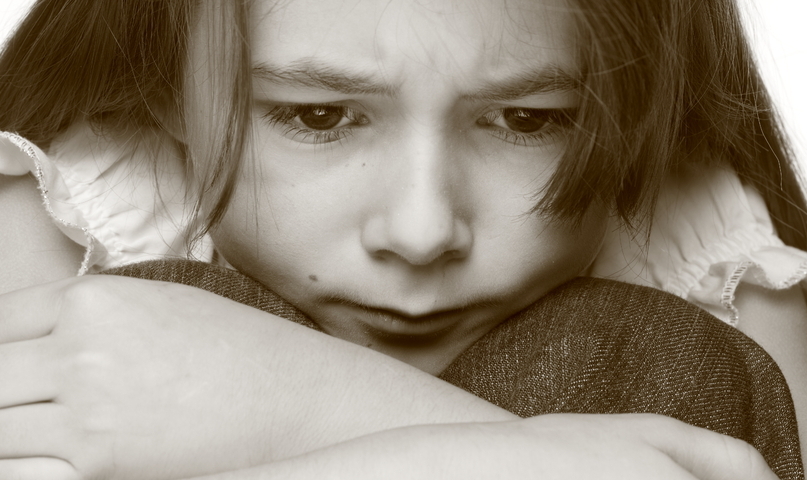How to Improve Frustration Tolerance in Kids?
With young kids, frustration tolerance can be a great problem. Frustration and anger, being very strong emotions, produce in the younger generation a highly intense response. The thing is, children haven’t the foggiest of how to cope with frustration. Managing these emotions requires knowledge, experience, and setting a special mindframe. So it’s advisable for adults to teach their children to build frustration tolerance skills with special home training. If you put in enough patience and understanding, it may happen that your precious child will learn to be resilient to strains.

Signs of low frustration tolerance
If your little one gets frustrated quite frequently you may notice it through the following manifestations:
- outbursts of anger accompanied by kicking, punching at things, and yelling.
- their flare-ups are age-inappropriate and too violent.
- they are unaccountably fussy.
- totally unable to calm themselves down.
- rigid, tend to dislike any changes.
- crying needs negative reasons that are milder and fewer than customarily.
- bending easily in situations involving pressure and criticism.
- slight discomforts prove greatly irritating.
- they demand immediate responses, praise, and gratification.
- irritation breaks out in behavioral patterns that are socially unacceptable, violent and even delinquent.
- sometimes they begin to hold some uncommon beliefs – catastrophization, a tendency to lay blame, being defenseless and helpless and the like.
Why is being easily frustrated a problem for a kid?
Kids that are easy prey for frustration often display some of the symptoms listed below:
- they manifest signs of developing the oppositional defiant disorder.
- do badly at school.
- don’t possess well-developed social skills.
- unacceptable behavior becomes more pronounced.
- neither parents nor peers provide enough support.
- they are more susceptible to anxiety, stress, and various mental disorders.
How to help a kid with poor frustration tolerance skills?
Learn games that help develop tolerance

Look around for quick challenge games and/or cooperative board ones (Chutes and Ladders is what comes to mind straight away). This kind of game implies that players cooperate to win. While playing youngsters can learn patience and strengthen their communication with their parents.
With younger children try Peaceable Kingdom – they are sure to love it.
Such games will have your kid(s) learn the rules, understand the necessity of following them, and get over it when they lose. Set off with a quicker game, and after a while move on to more complex and difficult ones requiring building strategies.
Recognize the frustrating experience
When you see your child overwhelmed by frustration, irritation, or sadness, your first wish may be to play the situation down and tell them it’s not the end of the world. It is because we get sad ourselves when we see our children sad. Still, it won’t do to pretend that it doesn’t matter – because for your kid it does matter, and it needs acknowledging and addressing.
Give the child your empathy
Squat or sit to bring yourself to the child’s eye level, meet their eyes, and try to imitate their facial expression.
Maybe they are tearful. Mention it. “Oh, so you’ve gotten to feel that bad. All your work got spoiled after you spent so much time on it.” Let your empathy sink in, stay like this for some time, and share their condition.
Maybe they are no end angry, ready to hit and kick, crush things? Try to get them sit on your lap, restrain them by hugging and pressing to your chest, and again, recognize their emotions. Saying: “You are so furious that you want to kick and yell. This has really gotten you down.” Stay with them and discuss their anger quietly.
Get involved in subsequent happenings
From the first stage, the situation can evolve differently depending on the child’s nature, age, the strength of the prevalent emotion, and so on.
Your first consideration should be your kid – maybe he or she is already tired? Or hungry? This will make a helpful break – make the kid happy and return to the situation afterwards.
If your kid’s efforts fell through, ask them what they intend to do: whether they would like to do the same thing again or switch on to some other activity. Let them make their own choices. When you offer them choices you make them feel more in control of their lives.
Spot their triggers
Naturally, every youngster has his or her own triggers that cause the onset of frustration; yet there are some common ones you must be on the lookout for:
- sudden changes
- peer conflicts (or imaginary negative attitudes)
- hunger
- difficult learning tasks (even preschoolers can find some of their usual tasks frustrating)
- real or imaginary misunderstandings with other people
- absence of control
- anything novel and unexpected
- exhaustion.
Not only you, but also the child must be aware of their triggers. Together discuss what preceded the frustration: if there were any special events, what occurred right before the onset. Take into account the time and the prevalent mood/physical condition of the child,
List maddening factors
Let your kid enumerate everything that infuriates them. While he or she speaks write down the irritating things. During the process be sympathetic and avoid showing the kid that you may resent something they say.
Having set everything down, hand the list over to the kid and tell them to tear it up (thereby giving them an emotional aggressive outlet). Let them tear it into small pieces and scatter them about the place. When you have completed the ritual you can throw away the litter.
Teach them how to sort out issues

When one cannot attain one’s goals it generates feelings of inability, helplessness, and ends in frustration. But it can be diminished when you try and deal with the underlying reasons for disappointment.
What you can teach them to do is – in spite of disappointment – think of providing an alternative outcome. Tell them about cases when you or your partner proved able to overcome frustration.
We all have conflicts that are left unsettled – there are skills that help live them down. For instance, negotiation.
Teach them how to mitigate stresses
Ways to alleviate stress are quite well-known – such as mindful living, meditation, practicing breathing deeply and relaxing muscles. Other ways are dealing with negative thoughts – especially useful for kids with a lack of tolerance.
More tips on developing frustration coping skills
Enrich your mind and life with reflection. Allot several minutes to reflect on how you handle sadness and disappointment. You could strike out, pout, complain aloud, breathe fire. Are you vocal, do you want to discuss your state with someone?
Chances are, you definitely do. Our children are watching us and learning from every single thing we do.
Bear in mind that your children notice how you behave in such situations and emulate you (or will emulate you when they grow up).
If you also have low frustration tolerance levels, work on it first before helping your child deal with their frustration tolerance problem.
